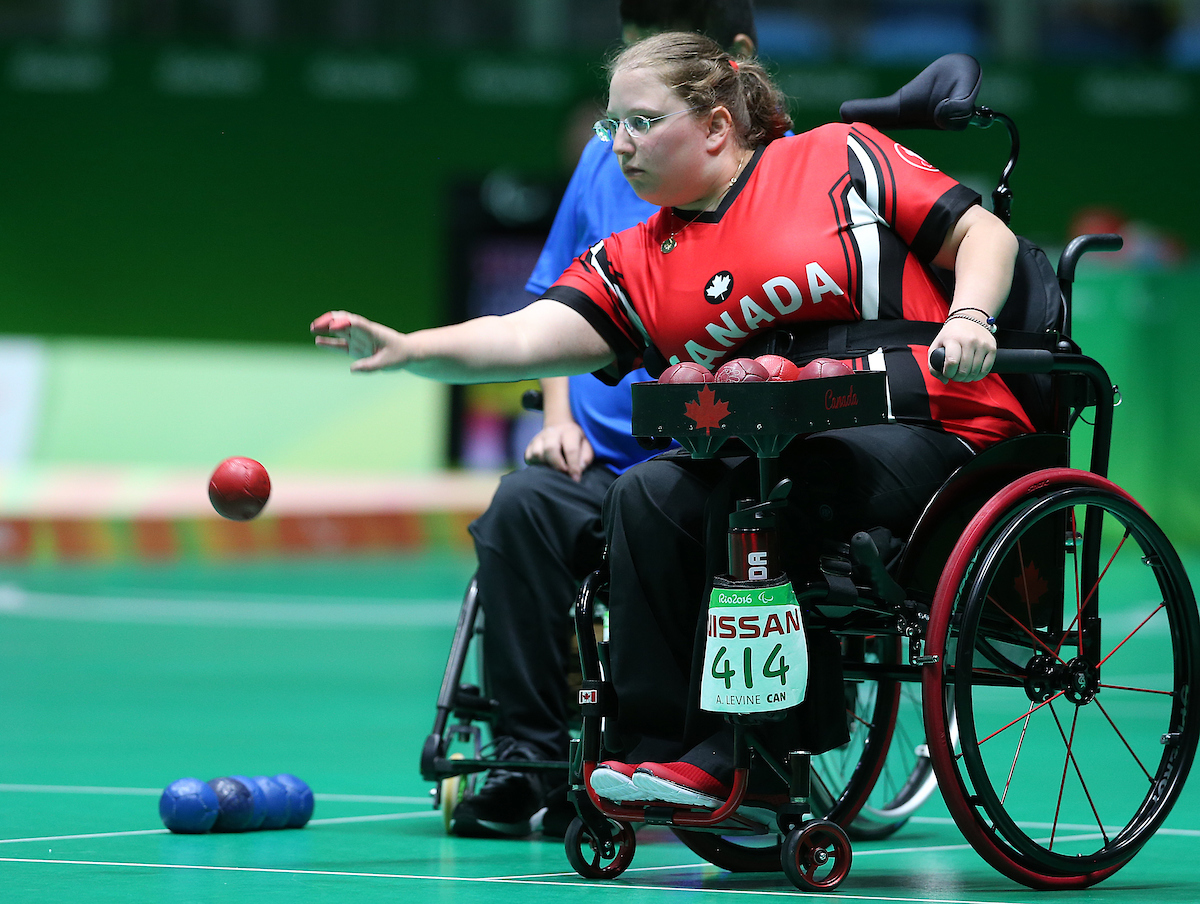Alison Levine gains independence through Para sport
"It gave me an identity other than the person in the wheelchair"
"It gave me an identity other than the person in the wheelchair"

TORONTO – Alison Levine was a young teenager when she received the self-described devastating news.
She was diagnosed with a neuromuscular disorder called idiopathic muscular dystrophy and was told she would gradually lose her physical capacities. It also meant she would need assistance and be in a wheelchair for the rest of her life.
‘’At that point, you just want to pull the covers over your head and say that’s it, I’m done.’’
But rather than heading to the bedroom, the 29-year-old from Montreal went to the gym and got involved in sport. She played wheelchair basketball, wheelchair rugby and even participated in competitive horseback riding.
Eventually she found her calling in sport. It was boccia and today she is ranked second in the world and considered one of Canada’s top medal contenders for the 2019 Parapan American Games and 2020 Paralympic Games.
‘’Para sport has brought me a reason to keep going on,’’ she said recently at the Canadian Paralympic Committee’s content summit in Toronto. ‘’I wasn’t that disabled kid anymore.
“I was an athlete. I was constantly wanting to be better and improve and it gave me an identity other than the person in the wheelchair.’’
Less than two years ago she was able to make a giant leap in her life. She moved out of her parents’ home to go live on her own in her own apartment.
‘’I have a place that has help 24/7 and meals are provided,’’ she said. ‘’But I have my own private space, it’s my own apartment, and I live my life the way I want to live my life. One of the reasons I was able to move out was because the confidence sport has given me.’’
While she knows her story of breaking the odds to gain independence is an important one to communicate to the world, there’s nothing Levine loves more than talking about her sport.
Boccia can best be described as similar to lawn bowls or even curling. Players score points by throwing or rolling coloured balls as close as possible to a white target ball called the jack. At the Paralympic level it is played by athletes with cerebral palsy and impaired motor skills.
The sport requires as much attention to mental focus as to on-court practice.
‘’We have a program that helps us with our concentration and focus,’’ said Levine. ‘’We practice mindfulness and meditation, deep breathing exercises and visualizations.’’
Levine was fourth at the world championships last year in Liverpool and moved to second in the world rankings earlier this month when she won the gold medal in her hometown at the Montreal Open.
‘’Because I compete individually and in pairs it’s like having two competitions back-to-back,’’ she said. ‘’It’s important to conserve energy throughout those competitions so when it comes to those ever-important quarterfinal and semifinal games, I’m still at my peak.”
If she’s not busy enough travelling around the world for her sport and establishing her personal roots, Levine was recently elected to the Canadian Paralympic Committee’s athlete council.
On the council she hopes to create opportunities for other athletes with severe impairments to gain their own independence.
‘’I want to ensure we are treated with as much dignity and respect as that of other Para athletes even though we require more help. I know through the council I will be able to give those of us in that situation a strong voice.’’
"*" indicates required fields